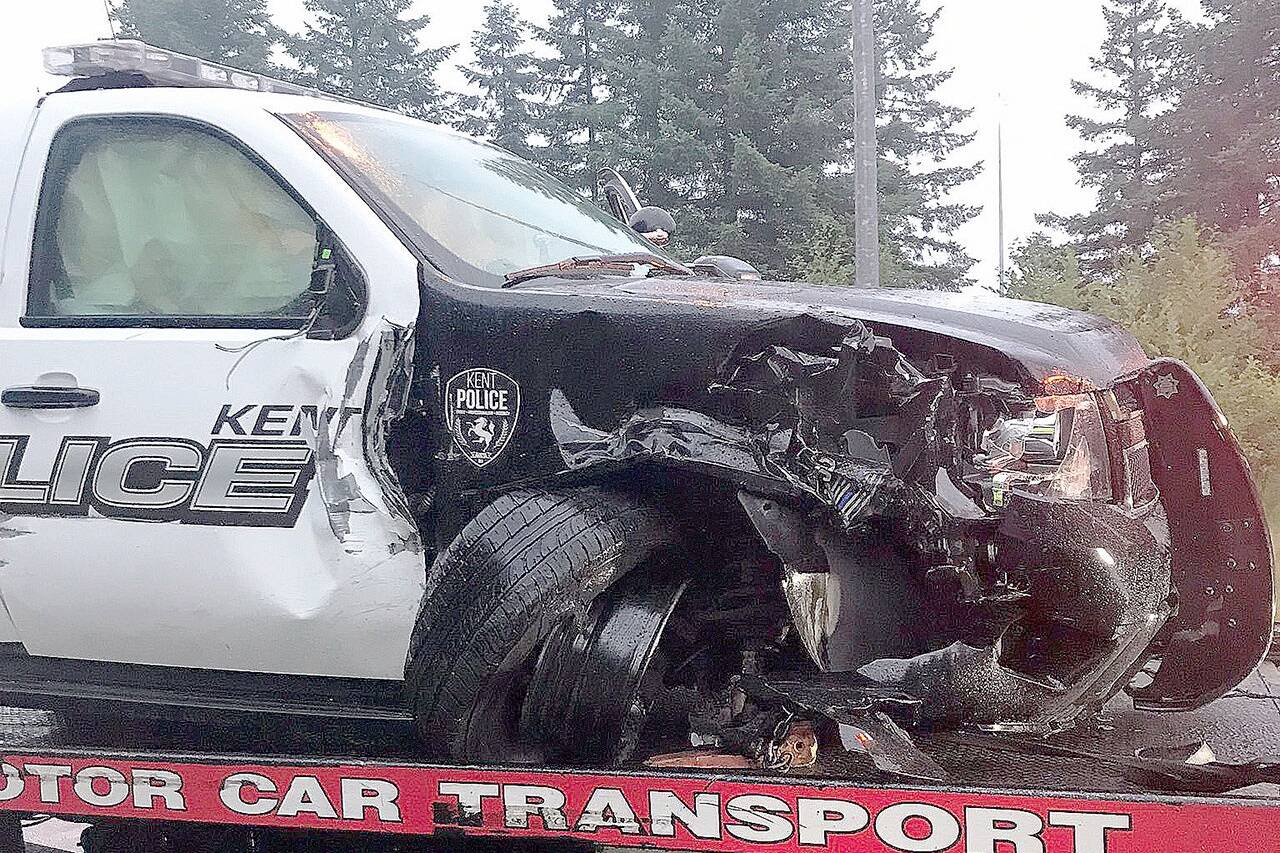OLYMPIA — Legislation restoring the ability of police to undertake more vehicle pursuits is headed to Gov. Jay Inslee after a divided Senate cast a final vote on the controversial measure Monday, April 17.
Senate Bill 5352 allows a law enforcement officer to initiate a chase with reasonable suspicion a person in a vehicle has committed or is committing a crime. Current law sets a higher threshold of probable cause in order to engage in a pursuit.
On a 26-22 margin, the Senate agreed with minor changes the House made before approving it last week. Inslee is expected to sign the legislation, which unwinds a piece of policing reform passed two years ago.
Rep. Roger Goodman, D-Kirkland, chair of the House Community Safety, Justice & Reentry Committee, watched from the wings as senators weighed in one last time on one of the session’s most contentious public safety policies.
“I believe we managed to thread the needle on this issue,” he said. “We give police discretion they need to pursue the most dangerous offenders while establishing reasonable limits that I hope will protect innocent bystanders and the public in general.”
This legislation rolls back a policing reform passed in 2021 in response to the 2020 murder of George Floyd in Minneapolis and other high-profile police killings — reforms aimed at reducing the potential for violence and death in police responses.
Some Democrats opposed the bill, arguing that with the tougher standard communities became safer with fewer high-speed chases and, in turn, fewer innocent bystanders injured or killed.
But law enforcement officials and elected city leaders asserted the revision emboldened suspected criminals to flee crime scenes with confidence of not getting chased. They cite the change as a factor fueling a surge in auto thefts and property crimes.
Some Republicans opposed the bill because they said it still restricted police too much.
“I believe our law enforcement officers are trained and capable of making good choices regarding pursuits and should be trusted to do so,” Senate Minority Leader John Braun, R-Centralia, said in a statement. “Crime is out of control. The police need more tools, not fewer.”
Under the bill, the crimes for which a pursuit can be undertaken are limited to a violent offense, a sex offense; domestic violence-related offenses, driving under the influence of alcohol or trying to escape arrest. And it limits vehicular pursuits to situations where the subject of the vehicular pursuit poses a serious risk of harm to others.
Other provisions require an officer to notify a supervisor when they initiate a chase. And it says an officer cannot engage in a pursuit unless they’ve completed specific emergency vehicle operator training and be certified in at least one pursuit intervention option.
Goodman said he anticipates legislation will be put forth next session to add auto theft and other felonies to the list of crimes for which pursuits can be undertaken. He said he’s not interested in such a conversation.
“I don’t intend to hear any bills in the near future,” he said.
His comments sounded strikingly similar to ones made in in January by Sen. Manka Dhingra, D-Redmond, chair of the Senate Law and Justice Committee. She declined to even hold a hearing on the bill.
“It is so politicized that I don’t believe the Legislature is the best body to now make changes on this,” she told reporters the first week of session. “I think that language is problematic because it takes us backwards to a time when we had innocent people dying because they just happened to be at the wrong place at the wrong time.”
Then, on March 8, a few hours before the bill would have lapsed, a revamped version was pulled directly to the floor of the Senate. It passed 26-23 with 16 Democrats and 10 Republicans pushing it across.
The House approved it 57-40 last week after making a couple minor tweaks.
The Senate took final action Monday by agreeing to the changes. In the end, 16 Democrats and 10 Republicans voted in favor while 13 Democrats and nine Republicans dissented.
Sen. John Lovick, D-Mill Creek, sponsored the bill. He said he understands the dialogue will continue next session.
“Everything around here is about compromise. We’ll see what we need to do. I think this is probably as good as we were going to get. I’m pleased with it,” he said Monday afternoon. “The governor’s message was to get something to his desk and that’s what we did.”
Because the legislation contains an emergency clause, it will take effect immediately if signed into law by the governor.


